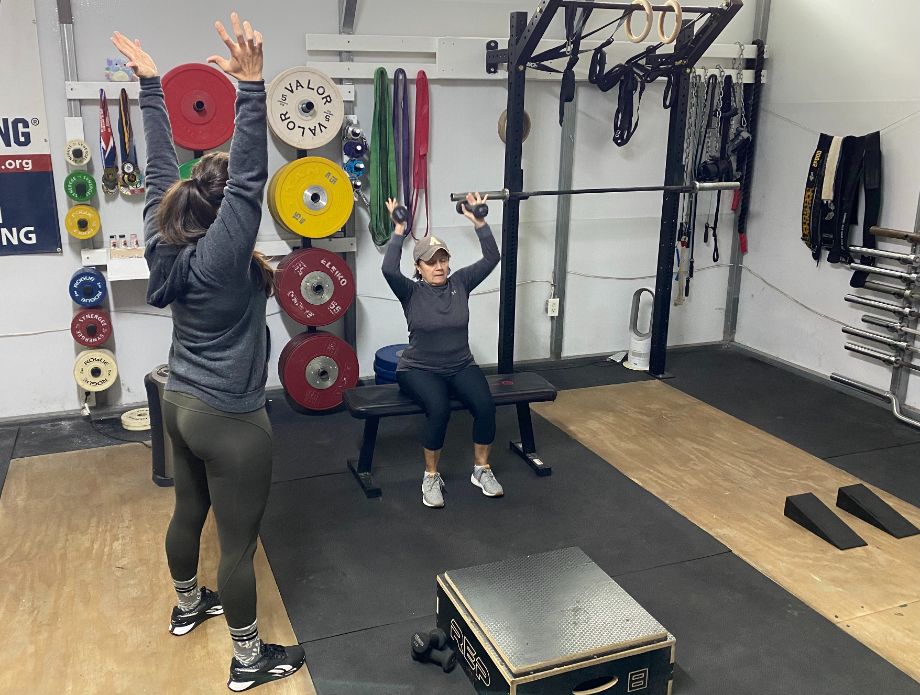We test and review fitness products based on an independent, multi-point methodology. If you use our links to purchase something, we may earn a commission. Read our disclosures.
Whether you’re looking for the best strength and conditioning certifications or are looking for continuing education opportunities for another certification, you’ve probably stumbled upon the NASM-PES certification.
Standing for Performance Enhancement Specialist certification, the PES course is designed to make you proficient in helping develop an athlete’s strength and performance in their respective sports. However, with so many certifications available—even in the world of strength and conditioning—is this course the right one for you?
In this review of the PES certification, I’ve looked at the course and its materials provided to see how it stacks up to other certifications, and who this course is best designed for. Read on to find out if this course is right for your personal fitness career.
Certified Experts Lead to Expert Reviews
When I say our reviews are “expert-tested and researched,” I’m not making it up. Our team of testers at Garage Gym Reviews is made up of fitness professionals who live and breathe fitness. Our team of trainers and coaches have certifications from NASM, NSCA, CrossFit—even USA Weightlifting certifications. Furthermore, we’re lifelong athletes who are always finding an excuse to be in the gym.
Although no one on our team has a PES certification, I did tons of research into the test to give you an overview of who the test is best for and the course material you’ll cover. Additionally, we’ve had three people on our team take the NASM-CPT certification, so we can speak on the quality of NASM courses and exams. We also looked at the following aspects of the course, as we do all fitness certifications:
- Price and value
- Accreditation
- Study options available
- Time commitment
- Exam format
- Continuing education requirements
RELATED: NASM Review: The Gold Standard of Personal Training Certifications?
NASM-PES
NASM-PES Certification
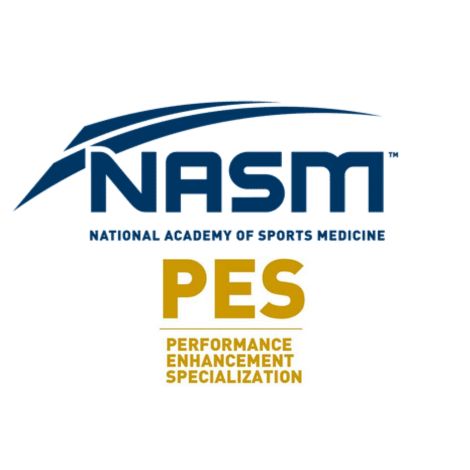
Product Highlights
- Performance Enhancement Specialization (PES) certification
- Can enhance a CPT certification
- Suitable for athletic trainers or physical therapists
- Some prerequisites required for PES
- 1-year timeline to complete course
Pros & Cons
Pros
- Online final exam
- Does not require recertification
- Potential to earn CEUs
Cons
- 90-minute max for final exam
- Not NCCA-accredited
Bottom Line
The NAS-PES certification can help fitness industry professionals enhance their knowledge of strength and conditioning. The course features anatomy and physiology, plyometrics, speed, agility, resistance training, and olympic lifting to name a few. There is also a chapter on performance nutrition. The final exam can be taken online and is a 100 multiple choice question exam that has to be completed in 90 minutes.
A Quick Look at the NASM-PES Certification
The National Academy of Sports Medicine has been training fitness professionals for over 35 years, training and certifying over 1.5 million professionals—and counting. Another big factor is that its most popular course—the NASM-CPT—has been accredited by the National Commission for Certifying Agencies (NCCA), which is huge for potential employers.
While it’s known mostly for its personal training certifications, NASM also hosts certifications for nutrition coaches, sports nutrition coaches, and wellness coaches; NASM also hosts quite a few specialization courses, like the CES (Corrective Exercise Specialist) or the NASM Performance Enhancement Specialist Course.
This course is a self-paced study course on training recreational and professional athletes, with an emphasis on strength and conditioning. The course claims to give you the tools and insight to improve athletic performance through programming and technique, as well as deliver results through their scientifically-backed Optimum Performance Training, or OPT model.
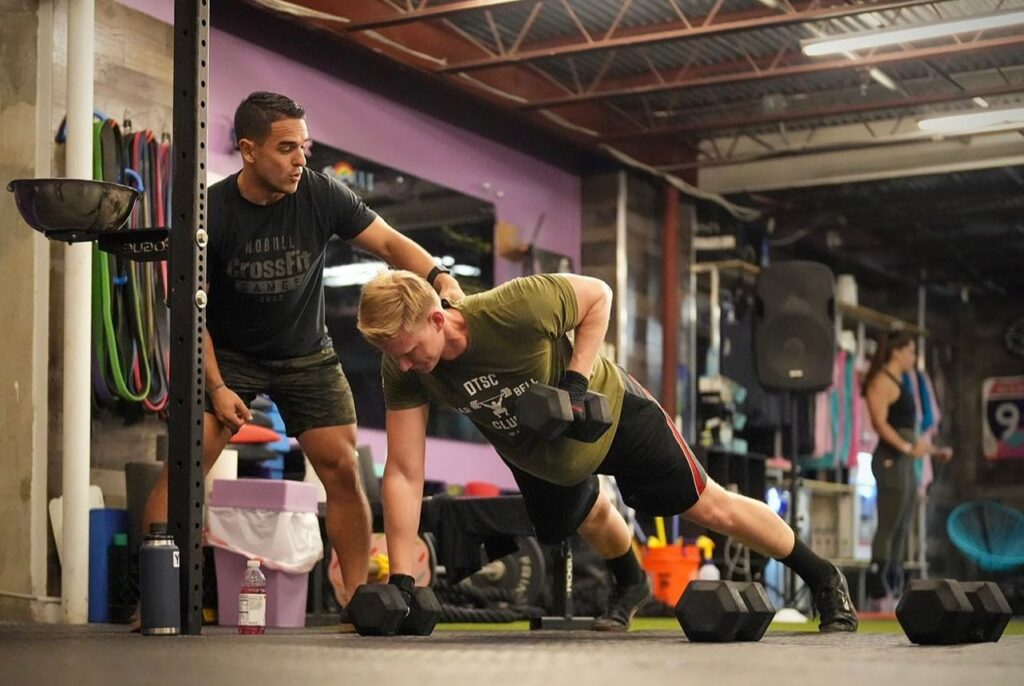
Once registered for the Performance Enhancement Specialist Certification, you’ll have a year to pace yourself through the study materials and take a timed, online final exam. Scoring 70% or higher on the exam rewards you with the credential of Performance Enhancement Specialist.
Before You Buy:
- Unlike the CPT certification, the PES course is not NCCA-accredited. That might make some people overlook the certification, but NASM also doesn’t treat it as an accredited course, having less rigidity in the course than other NCCA-accredited courses may have. For example, the course is self-paced, and the online exam is open-book and allows a couple of retests.
- The NASM Performance Enhancement Specialization course doesn’t have any requirements, although NASM recommends having a prior certification to the PES—either another accredited certification through NASM or another health and fitness organization.
- There are two options for the course, a Self-Study program and a Premium Self-Study program. Both programs offer an online textbook, videos, practice exams, a study guide and syllabus, and module quizzes. The premium version adds a hardcopy textbook as well as added tools, including weight room management training, programming samples, and youth programming for high school students.
- At $699 for the normal course, the NASM is affordable for fitness courses, but also still costs a pretty penny. Fortunately, NASM gives you the option of monthly payments after an initial down payment. You can choose a one-time payment or split your payments between 4, 12, or 18 months.
Is the PES Certification Worth It?
At $699 for the Self-Study course and $849 for the premium course, the NASM-PES is certainly one of the more affordable options as a whole for fitness certifications. However, when compared to other strength and conditioning certifications, it can still be one of the more pricey options.
For example, the NSCA CSCS certification—the gold standard for strength and conditioning coaches—costs $475 for non-members to take (although textbooks and study materials are extra). The ISSA Strength and Conditioning Certification costs $639 and provides the same self-paced style of the PES certification. The NCSF Certified Strength Coach certification costs the least, starting at $399.
RELATED: ISSA Certification Review
Another big difference between the PES certification and other strength and conditioning certifications is that the PES isn’t an accredited certification. This can be a big hindrance to choosing this course, especially if it’s your first certification, as it won’t hold the same prestige as a certification accredited by the NCCA or similar organization.
I think where the PES shines and where people would see value in it is as a continuing education platform. NASM doesn’t have requirements for this certification but recommends it for NASM certified personal trainers and fitness trainers with prior certifications. One big reason is that it can be used for continuing education units, or CEUs. And because it’s not as stringent or rigid of a course as others, it can be much easier to pace yourself and prepare on your own time for the final exam.
Great for:
- Personal trainers wanting to learn more about strength and conditioning
- NASM-certified professionals looking for continuing education units
- Beginning coaches looking for a course with low requirements both before and after certification
Not recommended for:
- Fitness professionals wanting an NCCA-accredited certification
- Aspiring strength and conditioning coaches looking for the first and best strength and conditioning certification to take
NASM-PES Specs
| Prerequisites | No prerequisites, but recommended prior certifications (NASM-CPT, Certified Sports Nutrition Coach, or any NCCA-, NBFE-, or DTEC-accredited cert), college degree, or REPs Level 3 or higher for international users |
| Number of study options | Self-paced and 100% online |
| Hard copy of materials available? | In the Premium Self-Study Option |
| Pricing | $699 (Self-Study) or $849 (Premium Self-Study) |
| Term length | 1-year access |
| Exam format | Timed, 90 minutes, 100 multiple-choice questions |
Course Prerequisites
The NASM Performance Enhancement Specialist certification doesn’t have any requirements, although NASM recommends you have prior certifications or education. The company heavily recommends that candidates have at least one of these credentials:
- NASM-CPT certification
- Certified Sports Nutrition Coach
- Certified Massage Therapist
- Any NCCA-, NBFE-, or DETC-accredited health or fitness certification
- A 4-year college degree
- REPs Level 3 or higher (for international candidates)
Typically in our rating, a lack of prerequisites can hurt the score we give a certification. Still, the guidance listed on who this course is best suited for leads me to give the score a modest 3 out of 5.
RELATED: NASM Nutrition Certification Review
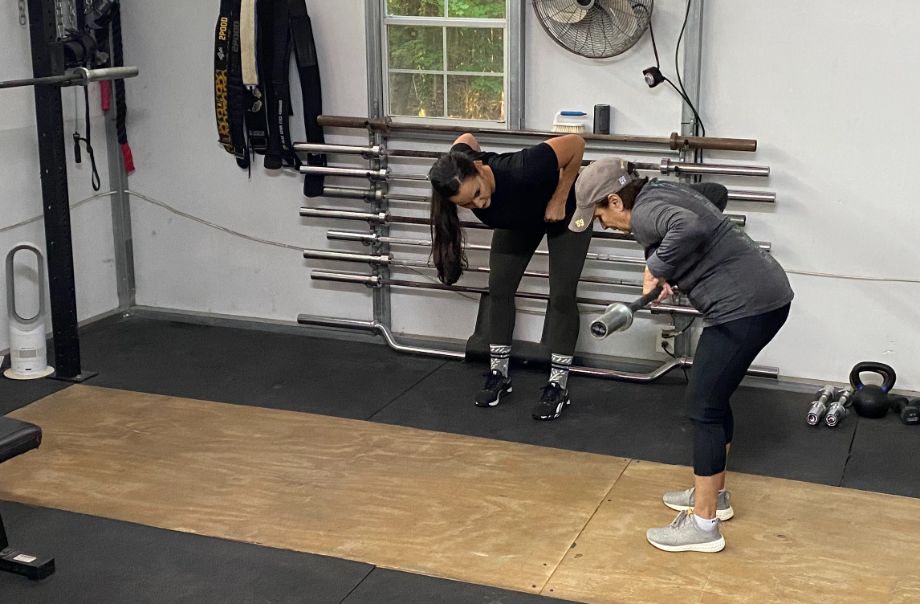
Course Options and Pricing
There are two course options, called Self-Study and Premium Self-Study. Both courses include:
- Online and self-paced course
- Syllabus and study guide
- Digital learning platform
- Digital textbook with lecture and demo videos
- Exercise library
- Online practice exams and module quizzes
The premium version of the course also includes a hardcopy textbook, as well as more training tools and samples, including a youth programming booklet, sample training programs, nutrition tips, sport-specific lecture videos, and weight room maintenance and management training.
The Self-Study course costs $699 and the Premium course costs $849, leading me to score the pricing a 4.5 out of 5.
Course Material: What You’ll Learn
The goal of the NASM-PES is to train coaches and fitness trainers to better help clients and athletes reach peak performance in any sport. The textbook for the PES course is 16 chapters, split up into four sections.
Anatomy and Physiology for Sport
The first two chapters of the course deal with the science of human movement and how it pertains to athletic performance. Basically, you’ll learn key terms on biomechanics, how muscles work in tandem with the other major systems of the body. Going through this section will help users understand functional anatomy and how it relates to integrated sports performance training.
Sport Performance Testing, Integrated Training, and Programming
The next section is one of the larger portions of the course, covering the next nine chapters of the text. Largely this section will look into the process of testing athletes with initial assessments and how to program to help them reach their top performance levels.
In addition to resistance training concepts, the section will cover other broad training concepts and why they should be integrated into an athlete’s training program. Main concepts covered are:
- Flexibility training
- Core training
- Balance training
- Plyometric training concepts
- Speed, agility, and quickness training
- Resistance training
- Metabolic energy system training (aerobic vs anaerobic)
Additionally, the fitness training concepts covered will be discussed as how they pertain to the OPT model, or the Optimum Performance Training model.
RELATED: Best Core Exercise Equipment
Olympic Lifting and Injury Prevention
The next section first covers Olympic weightlifting and how it can be used in improving athletic performance. As a weightlifting athlete, I do see the value of a section like this, as the snatch exercise and clean and jerk develop more than just strength, but also power, balance, mobility, and coordination. The Olympic lifts, if taught correctly, can be excellent in any athlete’s training routine.
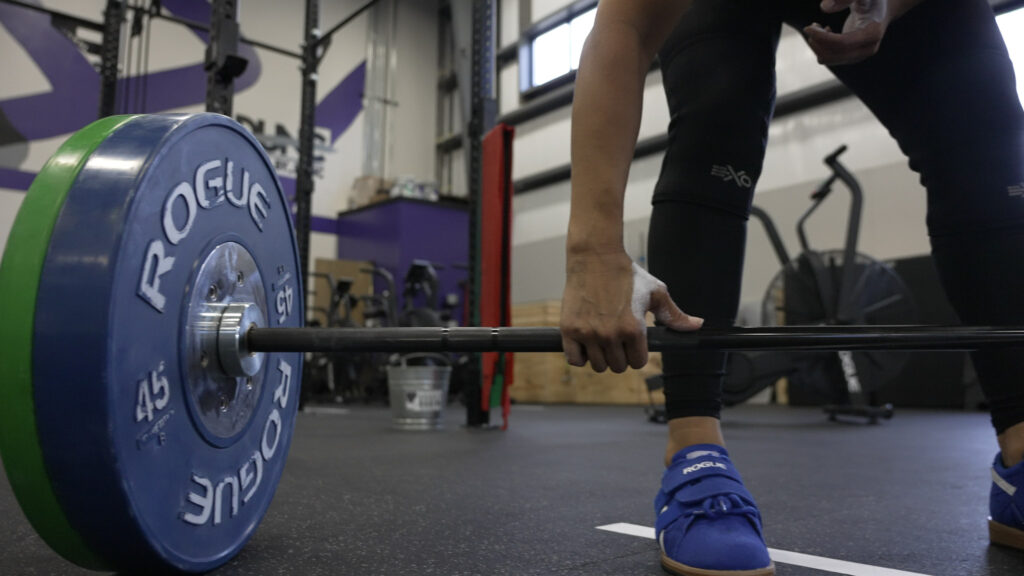
After the Olympic lifts, the course will go over common injuries from physical activity and some strategies and exercise techniques for helping prevent injuries and minimize an athlete’s risk of injury through smart training and a solid program design.
RELATED: Equipment for Olympic Weightlifting
Sport Nutrition and Psychology
The last section will dive into the lesser things taught in an exercise science degree—namely, sport nutrition and psychology. Firstly, it’ll talk about nutrition for athletic performance, while also explaining the limits of nutritional advice for a strength coach who’s not certified as a nutrition coach.
RELATED: Best Supplements for Muscle Growth
There’s also a chapter on ergogenic aids: supplements and foods used to improve performance as well as the ethical and legal issues for using ergogenic aids, ranging from supplements to performance-enhancing drugs. Lastly, the course will go over the psychology of athletic performance and how it can influence athletic excellence.
Course Design
The course is 100% online, unless you opt to get a hardcopy of the textbook. Otherwise, everything is online. The course is self-paced, and you have access to the materials for an entire year, so you can take as much or as little time as you need. You’re given a syllabus and study guide to help you with your pacing.

The digital textbook has 16 chapters with videos throughout the text. In addition, you’ll get an exercise library with another 64 videos, as well as module quizzes at the end of each section. You also have access to two practice exams. You begin with all of this at your fingertips from the start, and you can use whichever tools throughout your studying experience.
Exam Options
The PES exam is done within your year of access, whenever you feel ready for it. Once you pay for the course, you have access to the online final exam. If you worry about exams, you can rest assured on this one, as you’re allowed two free retests.
The exam is online and open-book. It’s only 100 multiple-choice questions, but be careful: The exam is also timed, with a maximum time of 90 minutes available for your test. To pass you must score at least 70% or higher.
Post-Certification Perks

Gaining a PES certification gets you a little more than just a certificate. Athletic trainers with a PES certification will be able to feel confident in creating performance programs for athletes to help maximize their potential on the field.
The main perks, though, come in the form of continuing education. Any NASM-certified professional can take this course and count it toward their continuing education. For a NASM certified personal trainer, for example, you need 2.0 NASM-approved continuing education units (CEUs) every two years to remain certified. The PES course is worth 1.9 CEUs, which when added to the 0.1 CEUs for recertifying your CPR/AED certification, covers you for one period of recertification.
This is the main reason why having a prior certification is highly recommended for this course; its biggest benefit to your professional career post-certification is that it’ll count toward your continuing education.
NASM-PES Recertification Requirements
For the NASM-PES, there are no requirements for recertification, as your certification never lapses. This can be very convenient, but it also never ensures that a trainer retains the knowledge from the course.
For that reason, the PES gets only a 1 out of 5 here, although I should note that this course isn’t structured like a typical certification course, and is instead more of a continuing education course. Under the right circumstances, this course and the lack of recertification can be very beneficial to fitness trainers.
NASM-PES vs NSCA-CSCS
NSCA-CSCS
NSCA CSCS Certification
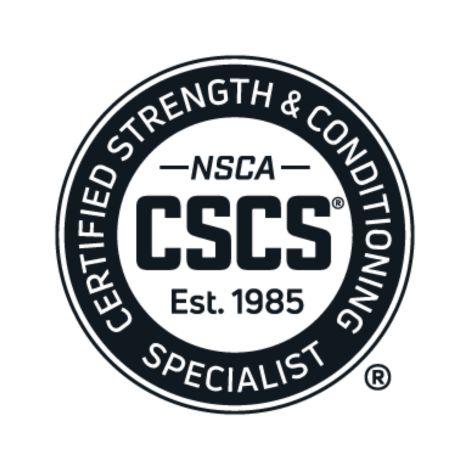
Product Highlights
- Certified Strength and Conditioning Specialist
- Prepares coaches to work with athletes and teams
- Bachelor’s degree required
- CPR/AED certification required
- 220-question exam
- 38% overall pass rate
Pros & Cons
Pros
- Highly recognized certification
- Delivers in-depth knowledge of strength and conditioning
- Multiple-choice question exam
Cons
- Study materials are separate from exam costs
- Exam must be taken within 120 days of registering
- In-person exam only
- Exam pricing starts at $340
Bottom Line
The CSCS program has been the gold-standard in the strength and conditioning community since 1985. The certification qualifies candidates to work with athletes, teams, and other sport-specific scenarios. To sit for the CSCS exam, you must have a bachelor’s degree or higher (or currently be enrolled as a college senior at an accredited institution). The CSCS is certified by the National Strength and Conditioning Association (NSCA).
Comparing the PES and the CSCS is like comparing apples to oranges; these two certifications are pretty different. While both cover the same ideas and concepts about strength and conditioning and sports performance, the people who should consider taking them are quite different.
RELATED: NASM vs NSCA
Simply put, the CSCS requires more upfront from candidates, with a CPR/AED certification and a bachelor’s degree required. The test is greater and more in-depth than the PES. Even more so, the CSCS also requires continuing education, unlike the PES certification. However, the CSCS is structured to be the certification needed for a strength and conditioning career.
While still a substantial course, the PES certification doesn’t have as many requirements, or as structured of an exam, because it’s designed mostly for continuing education. While the CSCS is made for career strength coaches, the PES is made more for fitness and personal trainers (or certified strength and conditioning coaches) who are looking to expand their knowledge of sports performance training.
Even though these courses cover a lot of the same material, their use in the fitness world is very different. You can look at our in-depth look at the gold standard of strength and conditioning certifications in our in-depth review of what the CSCS is.
| NASM-PES | NSCA-CSCS | |
| Prerequisites | No prerequisites, but recommended prior certifications (NASM-CPT, Certified Sports Nutrition Coach, or any NCCA-, NBFE-, or DTEC-accredited cert), college degree, or REPs Level 3 or higher for international users | Bachelor’s degree, CPR/AED certification |
| Study options | Self-paced and 100% online | Self-guided through textbook, practice quizzes and tests, and some live prep courses available |
| Hard copy of materials available? | In the Premium Self-Study Option | Yes; textbooks available for $107 for members, $108 for non-members |
| Pricing | $699 (Self-Study) or $849 (Premium Self-Study | $340 for NSCA members, $475 for non-members |
| Term length | 1-year access | You have to sit for exam within 120 days of registering |
| Exam format | Online; timed; 90 minutes; 100 multiple-choice questions | In-person; 220 multiple-choice questions (broken into 2 sections) |
PES Certification: Final Verdict
NASM is a highly regarded organization with a history of training fitness professionals over the years through in-depth courses and exams. The PES certification is another great course, full of information ideal to help individuals learn about sports performance and helping athletes reach their peak performance.
The biggest thing to deter some from the course is that it isn’t an accredited certification. With that said, it’s still an excellent course for certified personal trainers looking to gain some CEUs through an online course.
PES Certification: Full Rating
PES Certification: Researched and Reviewed | Garage Gym Reviews

Is this strength and conditioning certification right for you? Depending on your career goals, the PES Certification might be the next athletic performance cert for you.
Product Brand: NASM
Product Currency: USD
Product Price: 699
Product In-Stock: InStock
3.75
PES Certification: FAQs
How much does the NASM-PES exam cost?
The exam is included with the PES certification course, which costs $699 for the basic self-study version, or $849 for the premium self-study course.
What does PES stand for?
PES stands for Performance Enhancement Specialist, and it refers to the strength and conditioning certification offered by NASM—the National Academy of Sports Medicine.
What is the NASM-PES exam like?
The NASM-PES exam is a timed, online exam that can be done at home. It’s an open-book exam as well, meaning you can check your answers as you go through the exam. There are 100 multiple-choice questions, but the exam is timed at 90 minutes. A passing score is 70% or higher, and you’re able to retake the exam twice.
Further reading

Wanting to learn more about this discontinued elliptical? Get all your questions answered with our NordicTrack CX 998 Elliptical review. Read more

How long should you stay in a sauna? We spoke with Dr. Michael Masi, DPT, to answer this question and more! Read more

Whether you’re looking for the best strength and conditioning certifications or are looking for continuing education opportunities for another certification, you’ve probably stumbled upon the NASM-PES certification. Standing for Performance Enhancement Specialist certification, the PES course is designed to make you proficient in helping develop an athlete’s strength and performance in their respective sports. However, with so many certifications available—even in the world of strength and conditioning—is this course the right one for you? » Read more about: PES Certification (2024): Strength and Conditioning and Continuing Education » Read more

Weight training for women is important, yet many women are hesitant to start. Here’s your beginner-friendly guide. Read more

